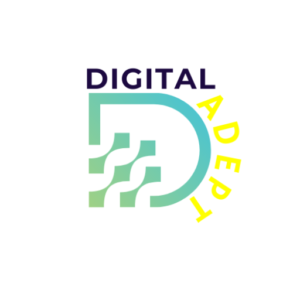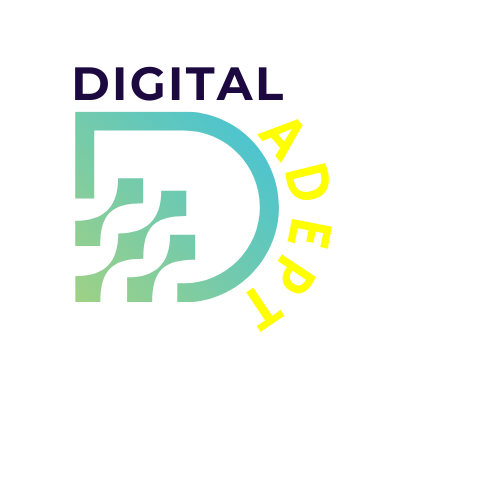What is digital marketing ? and why it is important for your business to grow online. In today’s digitally connected world, businesses must leverage digital marketing to stay competitive and relevant. Digital marketing services encompass a variety of strategies and techniques used to promote brands, products, and services online. This blog will explore the core components of digital marketing services, their benefits, and how to implement them effectively.

1. Understanding Digital Marketing Services
Digital marketing services include a wide range of online marketing strategies designed to enhance your online presence, drive traffic, and increase sales. These services can be broadly categorized into several key areas:
- Search Engine Optimization (SEO)
- Pay-Per-Click Advertising (PPC)
- Content Marketing
- Social Media Marketing
- Email Marketing
- Affiliate Marketing
- Influencer Marketing
- Online Public Relations (PR)
- Web Design and Development
- Analytics and Data Reporting
2. Search Engine Optimization (SEO)
SEO is the process of optimizing your website to rank higher in search engine results pages (SERPs). This involves:
- Keyword Research: Identifying the keywords and phrases your target audience uses.
- On-Page SEO: Optimizing your website’s content and structure.
- Off-Page SEO: Building backlinks to improve your website’s authority.
- Technical SEO: Ensuring your website is technically sound, fast, and mobile-friendly.
3. Pay-Per-Click Advertising (PPC)
PPC advertising allows businesses to place ads on search engines and other platforms and pay a fee each time the ad is clicked. Key elements include:
- Keyword Selection: Choosing the right keywords for your ads.
- Ad Creation: Crafting compelling ad copy.
- Landing Pages: Designing effective landing pages for conversions.
- Campaign Management: Monitoring and optimizing your ad performance.
4. Content Marketing
Content marketing focuses on creating, publishing, and distributing valuable content to attract and engage a target audience. This includes:
- Blog Posts: Regularly updated articles on topics relevant to your audience.
- Ebooks and Whitepapers: In-depth guides or reports on industry-related topics.
- Infographics: Visual content that presents information or data.
- Videos: Engaging video content for platforms like YouTube and social media.
5. Social Media Marketing
Social media marketing uses platforms like Facebook, Instagram, Twitter, LinkedIn, and Pinterest to reach and engage with your audience. Strategies include:
- Content Creation: Developing posts, stories, and videos.
- Community Management: Engaging with followers and responding to comments.
- Social Advertising: Running paid ads on social platforms.
- Analytics: Tracking and analyzing social media performance.
6. Email Marketing
Email marketing involves sending targeted emails to your audience to nurture leads and drive conversions. Essential elements include:
- Email List Building: Growing your list of email subscribers.
- Segmentation: Dividing your list into targeted segments.
- Campaigns: Creating and sending personalized email campaigns.
- Automation: Setting up automated email sequences.
7. Affiliate Marketing
Affiliate marketing is a performance-based strategy where businesses reward affiliates for driving traffic or sales. This involves:
- Finding Affiliates: Recruiting affiliates who align with your brand.
- Affiliate Programs: Creating programs with clear terms and conditions.
- Tracking: Monitoring affiliate performance and sales.
8. Influencer Marketing
Influencer marketing leverages influencers to promote your brand. Key steps include:
- Identifying Influencers: Finding influencers relevant to your industry.
- Partnerships: Establishing collaborations with influencers.
- Campaigns: Creating content and campaigns with influencers.
- Measurement: Analyzing the impact of influencer collaborations.
9. Online Public Relations (PR)
Online PR involves managing your online reputation and gaining media coverage. This includes:
- Press Releases: Distributing newsworthy stories to media outlets.
- Media Relations: Building relationships with journalists and bloggers.
- Reputation Management: Monitoring and managing online reviews and mentions.
10. Web Design and Development
A well-designed website is crucial for digital marketing success. Key components are:
- User Experience (UX): Ensuring your website is user-friendly and intuitive.
- Responsive Design: Making sure your website works on all devices.
- SEO-Friendly: Designing your website to be easily crawled by search engines.
- Conversion Optimization: Creating a site that converts visitors into customers.
11. Analytics and Data Reporting
Analytics are essential for measuring the success of your digital marketing efforts. This involves:
- Tracking Tools: Using tools like Google Analytics to track website performance.
- KPIs: Identifying key performance indicators relevant to your goals.
- Reporting: Regularly reviewing and reporting on your marketing metrics.
- Optimization: Using data insights to refine and improve your strategies.
Conclusion
Digital marketing services offer a powerful way to connect with your audience, build your brand, and drive business growth. By understanding and implementing these services, you can create a comprehensive digital marketing strategy that meets your business objectives. Whether you’re a small business or a large corporation, investing in digital marketing is essential for long-term success in today’s competitive landscape.
For more insights and tips on digital marketing, stay tuned to our blog. If you have any questions or need personalized advice, feel free to reach out to our team of experts!
Want to know about us Click here
You can also visit our facebook page

